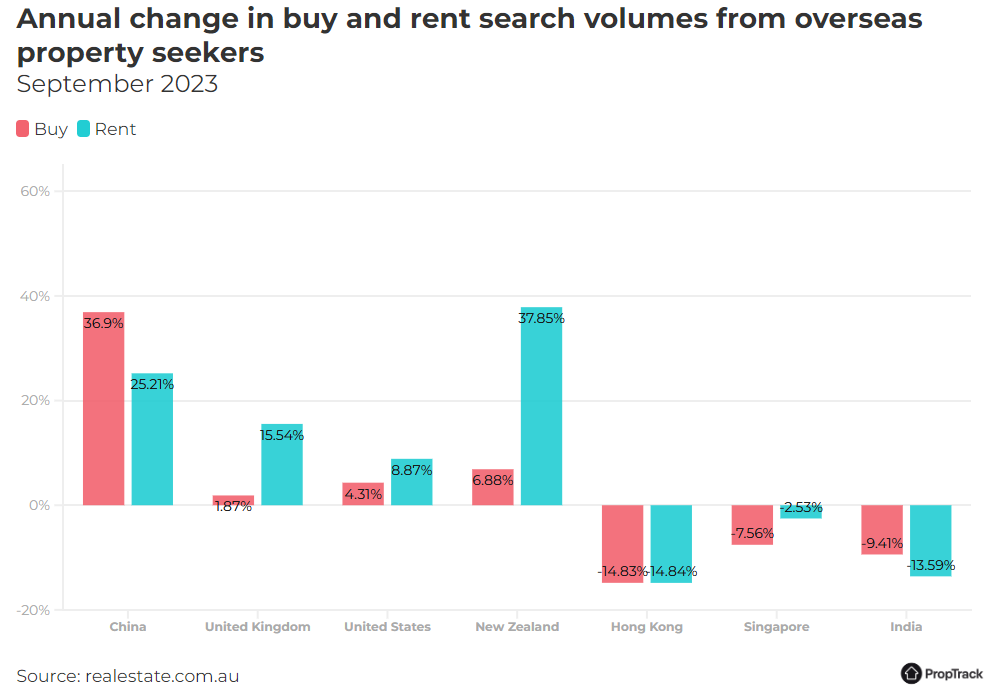Australia has the loosest money laundering rules in the world pertaining to residential property, which has made Australian homes a haven for dirty money.
Nearly 20 years ago, Australia agreed to implement “Tranche 2” global anti-money laundering (AML) rules, which would have brought real estate gatekeepers like realtors, lawyers, and accountants into the regulatory net.
However, successive federal governments have refused to implement these global AML rules amid heavy lobbying and opposition from those same gatekeeping industries.
The end result is that Australian has some of the weakest AML rules pertaining to property in the world, which has made our homes a global honeypot:

The Paris-based Financial Action Taskforce (FATF), the global AML regulator, warned in 2015 that Australian residential housing was being used to launder large sums of money, particularly from China, and urged Australia to implement AML rules that would bring real estate gatekeepers into the regulatory net.
The findings of the FATF were supported by the Australian Transaction Reports and Analysis Centre (AUSTRAC), which stated that “laundering of illicit funds through real estate is an established money laundering method in Australia”.
Over the last two decades, it is estimated that billions of dollars have been laundered through Australian houses, primarily from China.
Chinese money laundering has also been facilitated via the 888 ‘golden ticket’ visa, which was launched in 2012 by former Labour Treasurer Chris Bowen and has been operational for ten years with no denials.
90% of approved candidates are Chinese citizens. Nearly 20,000 Chinese have been granted for the Significant Investor Visa scheme alone, which requires a minimum investment of $5 million.
These ‘golden ticket’ visas provide immediate permanent residency in Australia and, unlike other visa classifications, do not require the applicant to show English language skills.
The Productivity Commission (PC) of Australia has recommended the abolition of the ‘golden visas’ program, claiming they serve as conduits for money laundering and ‘dirty money’ into the country.
Anti-corruption activists have long advocated for the visas’ revocation, arguing that corrupt officials use them to enter Australia and launder money.
Such ‘golden ticket’ visa program have already been phased-out in otheradvanced countries, but remain operational in Australia.
With this background in mind, it was unsurprising to read Thursday’s ABC report on another Chinese money laundering syndicate found operating in Australia, whereby large volumes of dirty money have flowed into Australian residential property:
“Federal Police allege 37-year-old Zhuo Chen, one of the co-founders of the Changjiang Currency Exchange, pocketed millions of illegally acquired funds and used other family members’ bank accounts to hide transactions”.
“Last week, seven people were arrested after officers swooped on Changjiang’s premises around the country. Police alleged the business helped criminals launder almost $230 million over the past three years…”
“The alleged ringleader of a money laundering syndicate owns a $10 million house outright…”
“AFP Detective Senior Constable Thomas Martin said Mr Chen and his wife Jie Lu received 30 per cent of Changjiang’s profits…”
Like all crime this is likely just the tip of the iceberg. How many scams like this are operating? And how much dirty money is being washed through Australian homes?
With Chinese buyers showing massive interest in Australian property, according to both Juwai IQI and PropTrack:

The Albanese government must, as a matter of priority, implement the global ‘Tranche 2’ AML rules as agreed by Australia nearly 20 years ago, well as shut the 888 ‘golden ticket’ visa program.
We cannot have Australians priced out of housing by illicit foreign dirty money.

